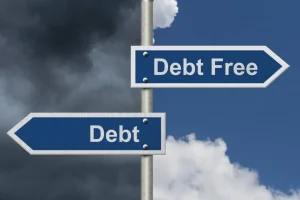The Financial Conduct Authority, which regulates financial services, has recently published an insight into the ‘journey into financial distress’ and what people who experience financial distress have in common.
They looked at a sample of credit files from the UK credit reference agencies which showed that approximately 12% of people had fallen into financial distress during a 3-year period (Jan 15 – Feb 18).
They defined a person as being in financial distress when:
- They fell 3 payments behind, or received a default, on any credit product or bill
- A County Court Judgement (CCJ) was issued against them
- One or more of their credit accounts was passed to a debt collector
They discovered that people who go on to experience financial distress tend to share some common characteristics around six months before hitting problems. The characteristics include:
- Younger people
- Lower income
- Lower credit score
- Higher debt balances
- Expensive forms of debt (high interest rates like payday loans, overdrafts and credit cards)
- Tend to utilise the credit available to them
This isn’t to say that every young person on a lower income will end up in the same situation; we know that is not the case but, from their research, it was a common finding.
Their research also contained some interesting statistics on the different types of borrowing which are likely to affect financial distress.
| Borrowing Group | Percentage that fell into financial distress | Average length of distress period |
|---|---|---|
| Mortgage holders | 6% | 5.9 months |
| Standard cost borrowers (standard interest rates) | 8% | 6.5 months |
| High cost borrowers (high interest rates) | 18% | 7.8 months |
| Household bills only | 5% | 8.3 months |
- High-cost borrowers are far more likely to suffer financial distress than other groups – nearly 1 in every 5 borrowers.
- People with arrears to household bills are usually being financially stable
- Younger users of high-cost credit are more likely to suffer financial distress than older users of high-cost credit
Now you know the warning signs, you can help prevent it from happening to you
- Write a monthly budget to make sure you’re accounting for all bills and expenses – this way you will know what you have left over so you only ever use the money you have, rather than taking out credit
- As soon as you feel any bills or debt payments are becoming difficult to manage, or your circumstances change, approach the companies to see what support they can offer you. Or, if you’ve already tried this and you still can’t manage, get debt advice
- Don’t wait for your lenders to contact you about arrears. The sooner you contact them the quicker you can get your situation under control.
- Remember, the companies will help you if you talk to them and be honest. The more open you are, the more help and support they will be able to provide.

Help is available
If you feel that you are in, or are heading towards financial distress, don’t worry. You’re not on your own; help and guidance is available. You can find a wealth of information on our help and guidance pages, and you can get tailored, online, debt advice here.


